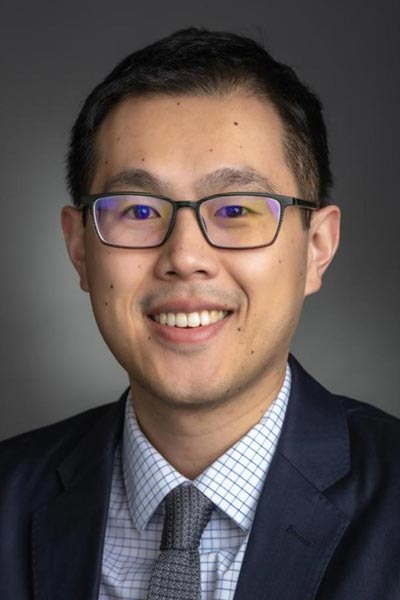Edmond Chan, MD
Spotlight on the AACR NextGen Stars Class of 2025
Since 2014, the American Association for Cancer Research (AACR) has provided the opportunity for graduate students, postdocs, and assistant professors to give high-profile presentations at the AACR Annual Meeting as part of its NextGen Stars Program. This year, 11 early-career researchers were selected based on their outstanding applications.
Learn more about one of the newest NextGen Stars below, and check out the Q&As with other members of the NextGen Stars Class of 2025.
Edmond Chan, MD
AACR NextGen Stars Class of 2025
Assistant Professor
Columbia University, New York, New York
Abstract Presentation:
Exploiting dysregulated ribosomal homeostasis in chromosome 9p21.3 deleted cancers and microsatellite unstable cancers
Session Details:
SY14 – Synthetic Lethality: What Next?
Monday, April 28, 12:30-2 p.m. CT
Room E450 A, McCormick Lakeside Center (Level 4)
What is the subject of your research?
We are interested in the alterations that make cancers “tick” and how these changes uncover vulnerabilities that we can exploit to selectively target cancer cells. We have a particular interest in gastrointestinal cancers, stemming from the many patients I have taken care of with this aggressive collection of cancers. Seeking to identify novel therapeutic strategies for cancer, we have established Werner syndrome protein (WRN) RecQ helicase as a synthetic lethal target for cancers with microsatellite instability-high (MSI-H). We also showed that WRN is required to unwind deleterious structures that accumulate with MSI-related mutations. These efforts have led to drug discovery efforts with ongoing clinical trials evaluating WRN inhibitors. In another example, we recently identified pelota ribosome rescue factor as a synthetic lethal target for MSI-H cancers and cancers harboring biallelic deletions in chromosome 9p21.3. Building upon this discovery, we are dissecting the molecular underpinnings of this novel synthetic lethal phenomenon and advancing this target for drug discovery efforts.
What sparked your interest in this area of research, and why is it important?
My interest in cancer was sparked during an undergraduate class on cancer biology. I was in awe of how something as simple as a few changes in DNA sequences could cause a disease as complex and devastating as cancer. My interest blossomed as a medical student learning about cancer and later with hands-on research during my Howard Hughes Medical Institute Medical Student Research Fellowship in the laboratory of William Hahn, MD, PhD. As an internal medicine resident and medical oncology fellow, the limitations of clinical oncology became increasingly palpable. During that time, I realized that dedicating my career to cancer research has the potential to affect many more lives than even the busiest clinic.
What (or who) inspired you to apply for the NextGen Stars program?
The NextGen Stars program provides a unique opportunity for young investigators to gain exposure and expand their scientific network. It is an honor to present alongside leading experts in the field.
What do you hope to take away from your experience as a NextGen Star and your time at the AACR Annual Meeting 2025?
The AACR Annual Meeting offers an amazing collection of science and networking opportunities, making it an excellent meeting to learn about emerging trends, establish collaborations, and advance one’s career.
More from the AACR Annual Meeting 2025
View a photo gallery of scenes from Chicago, continue the conversation on social media using the hashtag #AACR25, and read more coverage in AACR Annual Meeting News.


